Reading C.S. Lewis's Academic Books #2: English Literature in the Sixteenth Century (Excluding Drama)
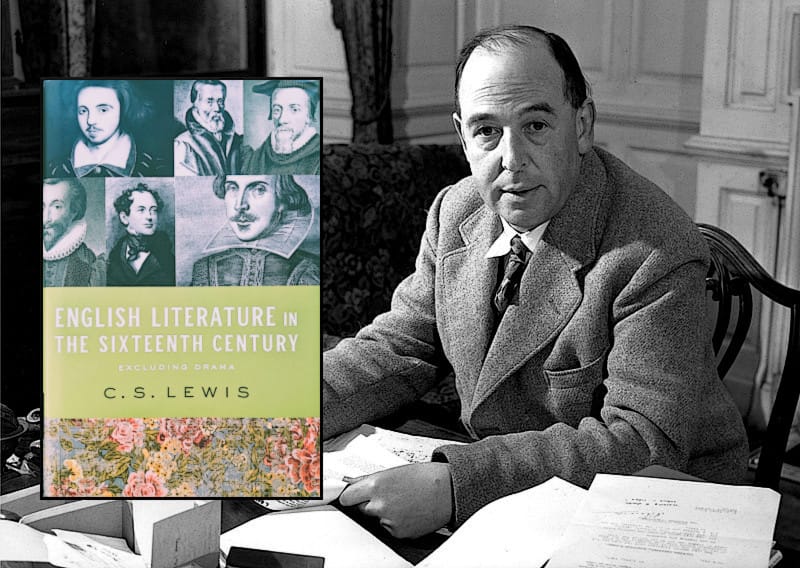
It took C.S. Lewis many years to write English Literature in the Sixteenth Century (Excluding Drama). According to Alister McGrath, it occupied his thinking and life for a long time—and, due to its immense size and intensely deep focus on its topic, severely wore him down. Among friends, he whimsically called it by its acronym OHEL (for Oxford History of English Literature), both its real title but also a weary expostulation: “Oh, hell!”
It was a chore for him to finish, but the end result is stunning in its depth and breadth. One could argue that it is Lewis’s greatest intellectual accomplishment. Not only does it tell you everything you’d ever need to (or want to) know about sixteenth century English literature, it is also among Lewis’s funniest books. One would expect such a dense tome with such a dreary title to be dry, scholarly, and prosaic, but Lewis’s writing is anything but.
Moreover, it is not just the style that is punchy; so are the ideas. Lewis goes about radically revising and contesting just about every received dogma about the sixteenth century, setting his crosshairs squarely on the Renaissance and its (assumed) positive effects on literature.
Because of the book’s size and the exhaustive chronicling of minor and even unheard-of figures (for those of us who are not specialists), a straightforward review or assessment of English Literature in the Sixteenth Century is difficult.
Rather, I’d like to focus on four brief things: 1) the book’s introduction, where Lewis’s historical revisionism is at its peak; 2) the broad argument; 3) humor and wit throughout; and 4) the big picture question of how to do history at all.
Not A Tame Lewis

We tend to think of the Renaissance as one of those Good Things™ in history. Like the Enlightenment, it is a shorthand for the resurrection of culture and humanity after the stultifyingly spiritual and religious Middle Ages. As I wrote about in my review of The Discarded Image, Lewis was resistant to this treatment of the medieval period. And so it’s not surprising that he’d be equally annoyed by the general esteem the progressive Renaissance is held in opposition to the “dark” Middle Ages.
Even so, I was a little surprised by just how hard Lewis pushes back against it. In the introduction to English Literature in the Sixteenth Century, Lewis goes on the warpath against almost all the common bits of wisdom we associate with the time period. His primary enemy is the stuff in history that supposedly “everybody knows.”
Chief among Lewis’s aims is to blow up myths about the Renaissance being an obviously superior period to the Middle Ages. For Lewis, the record is a lot more mixed—and he lets his disdain for the mistakes of the time show clearly. History simply isn’t clear enough for us to mark out certain trends adequately. It’s not a stark binary of “enlightenment” versus “conservatism.”
The humanists, contrary to popular wisdom, were not especially good for language. As Lewis contends, their attempts to rescue Latin ended up killing it—taking a still living language, one used by academics and scholars, and draining it of life and vigor such that it ossified into an inflexible rhetoric: endlessly repeating Cicero (but only his style, not his ideas). And though they pushed the boundaries of intellectual freedom, they also retained excessive allegorical interpretations of ancient texts, which for Lewis was one of the worst aspects of medieval thought.
It is also not a stark binary of humanism and science against puritanism and religion, as we tend to think. Many of the humanists were suspicious of science. Lewis poured scorn on the philosophical efforts of the Renaissance humanists, writing that, “No humanist is now remembered as a philosopher. They jeer and do not refute. The schoolman advanced, and supported, propositions about things: the humanist replied that his words were inelegant.” The conflict between humanists and medieval scholastics was “not a war between ideas: it was, on the humanists’ side, a war against ideas. It is a manifestation of the humanistic tendency to make eloquence the sole test of learning.” In many ways, then, humanism overlapped with Puritanism, rather than opposed it. In its strict policing of rhetoric and aesthetics it ironically encouraged a new kind of “philistinism.”
Strong words! Lewis was not exactly a supporter medieval scholasticism, so his judgment here should not be viewed as the rumblings of an angry Thomist who is upset that kids these days don’t read the Summa Theologica. Such intellectual borborygmus is reserved for today’s integralists.
Instead, Lewis is looking at things from the vantage of literary history, and from a literary perspective, the Renaissance might not have been one of those Good Things™ as much as we tend to think it was. At least, not if poetry is the measuring stick.
After his bold introduction, the main body of the text focuses on English literature in the 16th century, divided into three periods: the Late Medieval, the “Drab,” and the “Golden.” In these eras, Lewis brings his magnifying glass to look at virtually every poet who set pen to paper, even the poor ones. For, after all, “bad books may be of importance for the history of taste and if they are passed over too briefly the student’s picture of the period may be distorted.”
Lewis's Main Argument
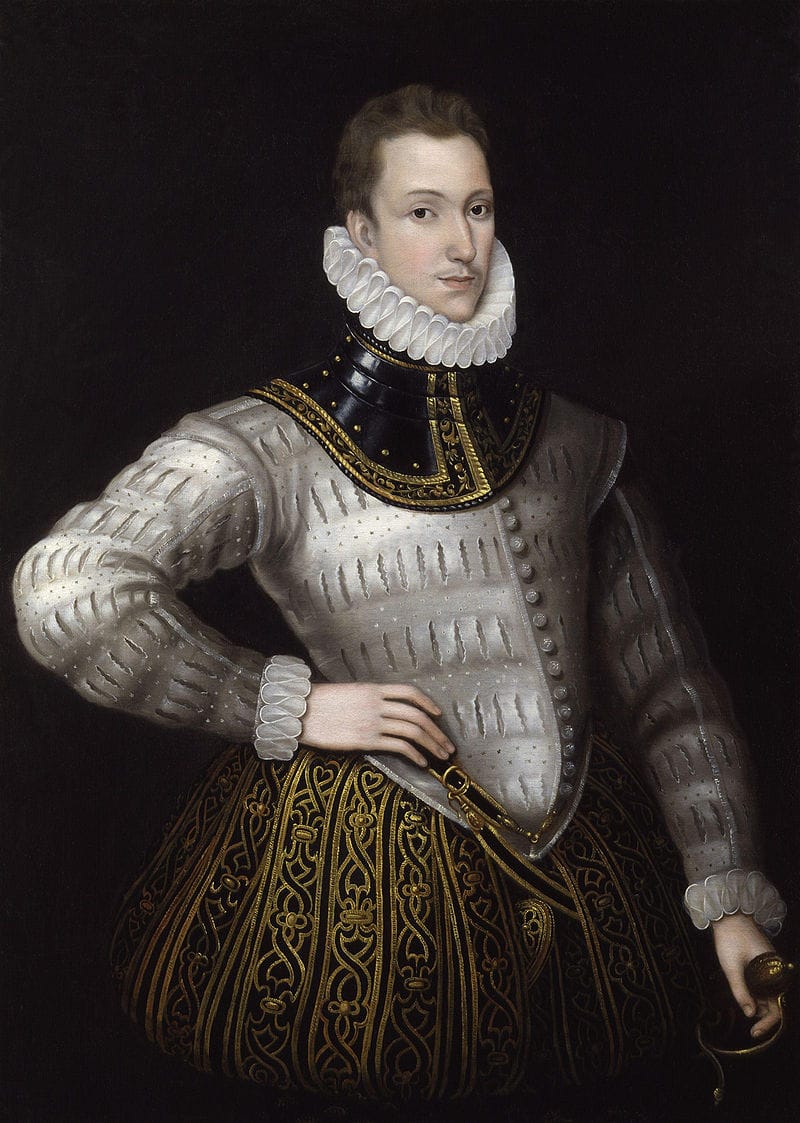
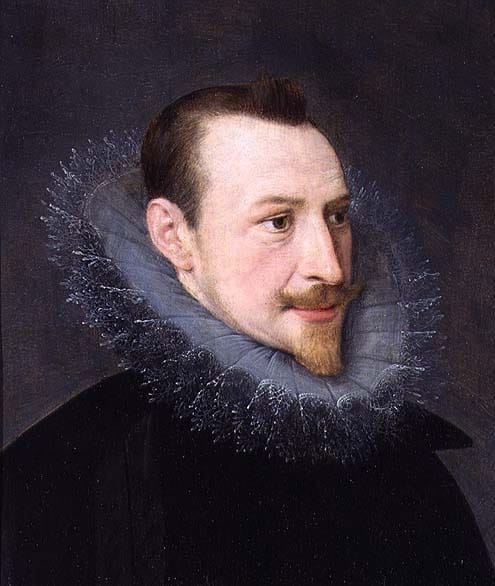
Philip Sidney (left) and Edmund Spenser (right). Images from Wikimedia Commons.
Lewis’s study begins in the Late Medieval, and focuses on England and Scotland separately, for the situations were quite different. In Scotland, things were vibrant, but in England poetry was moribund. “From the varied excellence of the fourteenth century,” he writes, “to the work of the early sixteenth century it is a history of decay; so that in turning from the Scotch poetry of that age to the English we pass from civilization to barbarism.” Lewis takes care to note that this not what we would expect from feudal Scotland in comparison to Renaissance England, but it is nevertheless the case that, once we get to Alexander Barclay, “we touch rock bottom.”
Why emphasize this? It shows that “the history of literature is very far from being one of simple progress.” It is not like evolutionary biology. In fact, we are reminded of “a truth which the incurably evolutionary or developmental character of modern thought is always urging us to forget. What is vital and healthy does not necessarily survive.” The death of this lively Late Medieval Scottish poetry is one such example, while the persistence of intolerable English verse is its counterexample.
We reach a rather bland middle period in the “Drab Age,” as Lewis calls it. Though he is clear that by “drab” he means a style and not just a quality, it’s not hard to detect an aesthetic revulsion on his part. Thomas More, for instance, is good drab, but still drab. “There is nothing in him, which, if further developed,” observes Lewis, “could possibly lead on to the graces of Elizabethan and Jacobean literature. It might have led to things which some would prefer, but very different things.”
The individual poetry is at a low ebb, though, and what was good in Drab Age verse was, seemingly, what was left over. As he writes, “The Drab poetry which can still be read with some approach to pleasure is that which owes most to the Middle Ages or to the popular tradition.”
Some might argue that the era had promise and that Henry VIII caused its futility by killing all the good poets, but Lewis questions whether the poets he killed had any promise! The ones who lived were not any better, either. “It is not clear,” he quips in one of the most brutal lines I can recall from his writing, “that our poetry would be much the poorer if he had beheaded nearly every writer mentioned in this chapter.”
However, things start to change in a transitional period. Drab starts to evolve. Tastes start to improve. And then, finally, we are at the apex: the Golden Era. It is the one we all know, that lofty period of literature which boasts Sidney, Spenser, and Shakespeare. Their appearance, and the development of Golden poetry, is virtually miraculous, in Lewis’s view. And even though he is clear that by “Golden” he does not mean a synonym for “good,” it’s clear which era has the best quality.
How this happened, how English literature suddenly sprang into maturity as the great art that we now know it to be, is more than a little mysterious. But one finds intimations of it all around, not just in the poets. Everywhere the evidence testifies, “Somehow or other during the latter part of the sixteenth century Englishmen learned how to write.”
A Spoonful of Humor Makes the Medicine Go Down

Lewis was fond of wry remarks, and they show up with great frequency in English Literature in the Sixteenth Century. Lewis’s popular books are often funny (especially The Screwtape Letters), but his academic work has a different kind of humor. As mentioned above, I suspect much of this had to do with how tedious writing this book was, and Lewis occasionally needed to vent.
Rather than dwell too long on its style (a joke is, after all, like an animal dissection—you kill it by trying to understand it), I thought I’d reproduce a number of what I thought were his most humorous lines.
On Catholics and Protestants attacking the medieval romance stories:
The only difference in this matter between a Roman and a Protestant humanist was that the former had to be content with calling the romances barbarous and silly while the latter could add ‘And popish too.’ Both beat the same dog, but the Protestant had an extra stick.
On the impossibility of defining the Renaissance:
Till now ‘The Renaissance’ can hardly be defined except as ‘an imaginary entity responsible for everything the speaker likes in the fifteenth and sixteenth centuries.’
Lewis unwittingly using some contemporary Gen Z slang:
[Skelton] has at his command a resonant singing voice and a goblin energy which Chaucer has not.
On the impossibility of finding any good lines in Thomas Newton other than the few T.S. Eliot highlighted:
In my sad progress I have sometimes thought I could find others to set beside them: but it was only the same sort of illusion which might make a man, by long residence in Lincolnshire, come to take a mound for a mountain.
On Edward de Vere, Earl of Oxford, whom conspiratorial nitwits have nominated as the man who secretly wrote Shakespeare’s plays but whom Lewis calls “a faint talent,” we find Lewis throw up his hands:
The mind sickens at the task of dragging all these poetasters back to the cruel light.
Though, he says, it’s worth it if we can cure ourselves of the notion that the Drab Age was a progressive period before the Golden which followed it linearly.
Continuing, here's a good aphorism to keep on the shelf:
Nothing in literature is so ‘desperately mortal’ as stylish prose.
On the dreariness of this middle era:
In the Drab Period nearly all prose writers sound middle-aged.
On the supposed changes in Sidney’s poetry between Sonnets 32 and 33:
The change, we are told, coincides with the marriage of Penelope Devereaux to Lord Rich; and XXIV, which does not fit the theory, must have been put in (as God, in some anti-Darwinian theologies, put in the fossils) to deceive us.
On poets supposedly influencing each other to a high degree, Spenser and Harvey in particular:
Poets are not so like putty as is sometimes implied.
On the dangerous fusing of church and state:
Prince and priest in the sixteenth century both still desire to ride the pale horse theocracy: and when two men ride a horse we know where one must sit.
On Joseph Hall apparently believing that satire was made better by being impossible to understand:
Hall pleads that it is hard to make English as ‘darksome’ as Latin. But, like a persevering humanist, he does not despair and promises at the end of the third book that in the future his meaning will be much harder to find.
On the temptation that made George Chapman’s In Noctem not as good as it could have been:
[It] suffers from having that amorphous subject which never attracts a good writer and always exposes a bad one: the general state of the world today.
Attitudes Towards Women
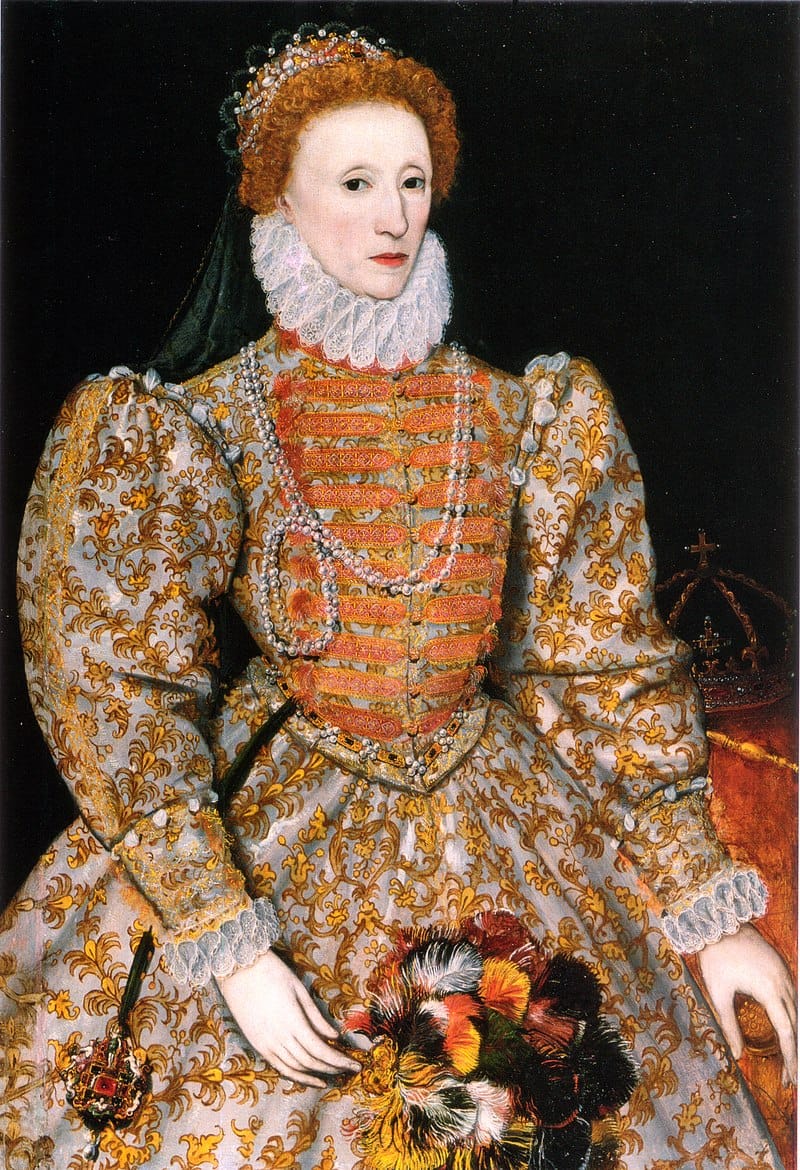
In addition to all these lines where Lewis lets his wit run free (or in which he could contain his vexation no longer), he also took time to highlight the disdainful attitudes towards women that many of these writers held. Sometimes he’d joke about it, sometimes he would just be frustrated.
William Tyndale shows improvement here, and in fact this is one of the positive aspects of the Renaissance and its humanism that Lewis lauds. When Tyndale reprimanded those medieval writers who “abhorred all womankynde,” Lewis remarks, “If much that was holy and lovely in medieval asceticism was lost at this time, some genuinely vile and Manichaean elements were rejected also.” He also highlights Richard Mulcaster as a “great defender of women” who “advocates their education.”
That said, blithely offensive remarks about women were common in the sixteenth century too, and Lewis points them out when they arise.
Some of the religious thinkers of the time, for instance, chafed at being ruled by Queen Elizabeth I and sought to explain why she shouldn’t be a sovereign (though, at the same time, they tried to also explain that pious people had to accept it if poorly-devised laws forced them to bow to a woman). Lewis quips that such mealy-mouthed politicking must not have pleased Elizabeth very much. “No woman,” he writes, “likes to have her social position defended as one of the inevitable results of the Fall.”
On this topic, John Knox contributed First Blast of the Trumpet Against the Monstrous Regiment of Women. For Lewis, “no book more calculated to damage the Protestant cause could have been written.” Moreover, Knox concluded it was the duty of the people to overthrow all queens and to kill anyone who supported them.
Lewis writes, “And he never to the end of his days seemed quite to understand why Elizabeth disliked this little book.” Knox even wrote her a letter, saying that she had no justification to be angry with him: “Quhy that youre grace be offendit at the authore of such ane worke, I can perceave no just occasion.”
More personal, rather than political, misogyny arises in Thomas Wyatt. His poetry is “full of resentment…He never goes out of himself: how badly his mistress has treated him, how well he deserves to be treated, and how much more fortunate he has been with other women, how sorry she will be some day—such are his recurrent themes.” Lewis is not impressed. “My sympathy deserts my own sex: I feel how very disagreeable it must be for a woman to have a lover like Wyatt.”
And in the ecclesial setting, Lewis also includes a remarkable gloss on Thomas Cartwright, “who would deny baptism by women even if he believed the unbaptized to be ‘assuredly damned’.”
While some of Lewis’s observations here are amusing, he’s more often irritated and annoyed. I thought it was interesting to dwell on, because a recurrent commentary on the status and perception of women among the 16th century writers was not something I had expected him to focus on.
Is History Possible?

One might get the sense from the above sections that Lewis had a hard time getting through some of this book’s writing, which—according to McGrath—is true. It was a long and arduous undertaking, and it burnt up a lot of his creative powers.
He also struggled to piece together a historical narrative to make sense of the changes in this century. So difficult is this process that, in conclusion, Lewis seemed more interested in whether history was even possible.
The book ends with an epilogue on post-16th century developments, especially metaphysical poetry, before a rather abrupt concluding paragraph. Lewis’s final lines, however, encapsulate the entire complicated project of history:
I do not suppose that the sixteenth century differs in these respects from any other arbitrarily selected stretch of years. It illustrates well enough the usual complex, unpatterned historical process; in which, while men often throw away irreplaceable wealth, they not infrequently escape what seemed inevitable dangers, not knowing that they have done either nor how they did it.
The past is always, to some extent, a foreign country, which is partly why Lewis so strongly advocated reading old books. But it’s difficult to make sense of the story from our hindsight. What seemed important to the people at the time might turn out to be merely a passing fad, and huge, epochal shifts might not have been noticed at all until we come later to observe them.
“Arbitrary” is a keyword. One of Lewis’s operating assumptions throughout the book (it shows up in the intro as well) is that all of our usual boundaries of years—decades, centuries—are mostly random and for convenience. They do not reflect history in its reality. Despite dividing his book into three periods, Lewis writes, “‘Periods’ are largely an invention of the historians. The poets themselves are not conscious of living in any period and refuse to conform to the scheme.” We use these devices because even “though ‘periods’ are a mischievous conception they are a methodological necessity.”
That the methodology of history might be different from the reality of history is a sobering thought for the historian. But, for Lewis, this might be the whole point. Philosophies of history are tempting, but we might do well to resist this siren song.
Some think it is the historian’s business to penetrate beyond this apparent confusion and heterogeneity, and to grasp in a single intuition the ‘spirit’ or ‘meaning’ of his period. With some hesitation, and with much respect for the great men who have thought otherwise, I submit that this is exactly what we must refrain from doing. I cannot convince myself that such ‘spirits’ or ‘meanings’ have much more reality than the pictures we see in the fire.
Perhaps one might find this too strong, maybe a latent perspectivism in Lewis that is at odds with his objectivity in other fields (ethics, for instance). But I think the key takeaway here is the same point that Lewis was trying to make in The Discarded Image: humility.
The point is not that history is impossible, but that it is—in some ways—always filtered or arbitrary. And that is okay. We can never fully enter into the minds of others, and so we should remember that one day the future historians will look at us with bewilderment the way we do the past. As he argues, “The greater part of the life actually lived in any century, any week, or any day consists of minute particulars and uncommunicated, even incommunicable, experiences which escape all record.” We cannot ever know these things about the past, but we can know it about ourselves. And if, like in scientific methodology, the present is the key to the past, then there ways for those bridges to be built.
We should still do history, but we must keep this in mind. And we must remind those who come after us to keep it in mind, too, when they attempt to sort out just what was happening in the early 21st century.
PS: If you are interested in other entries in this series, you can find them by clicking the link below:
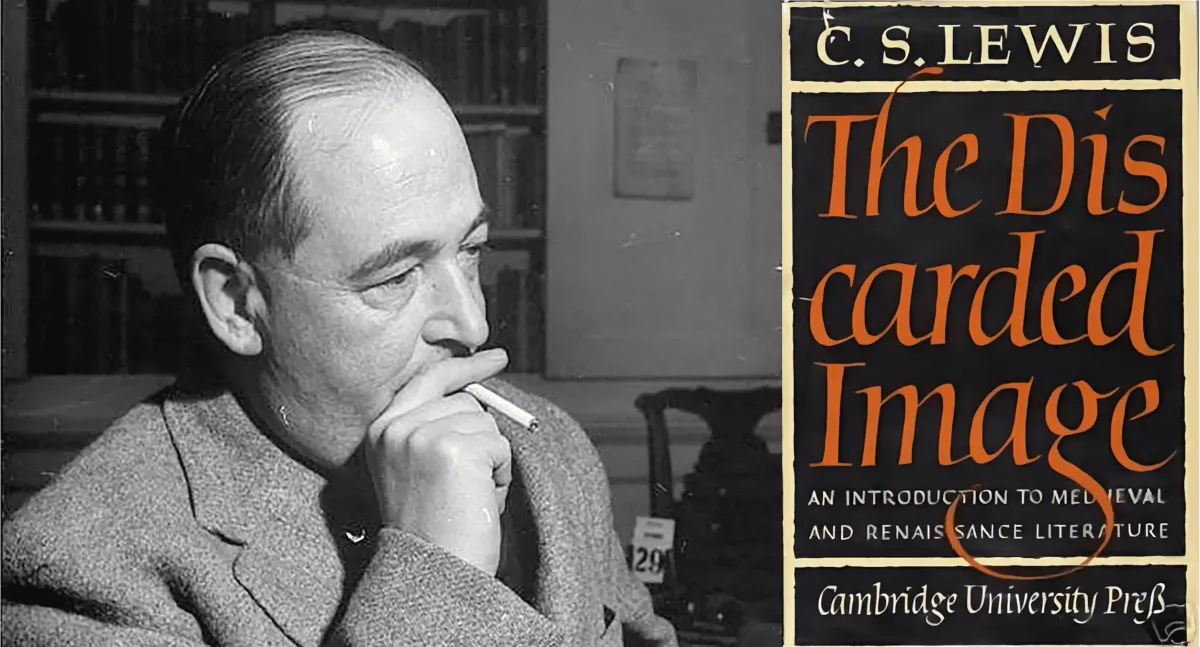
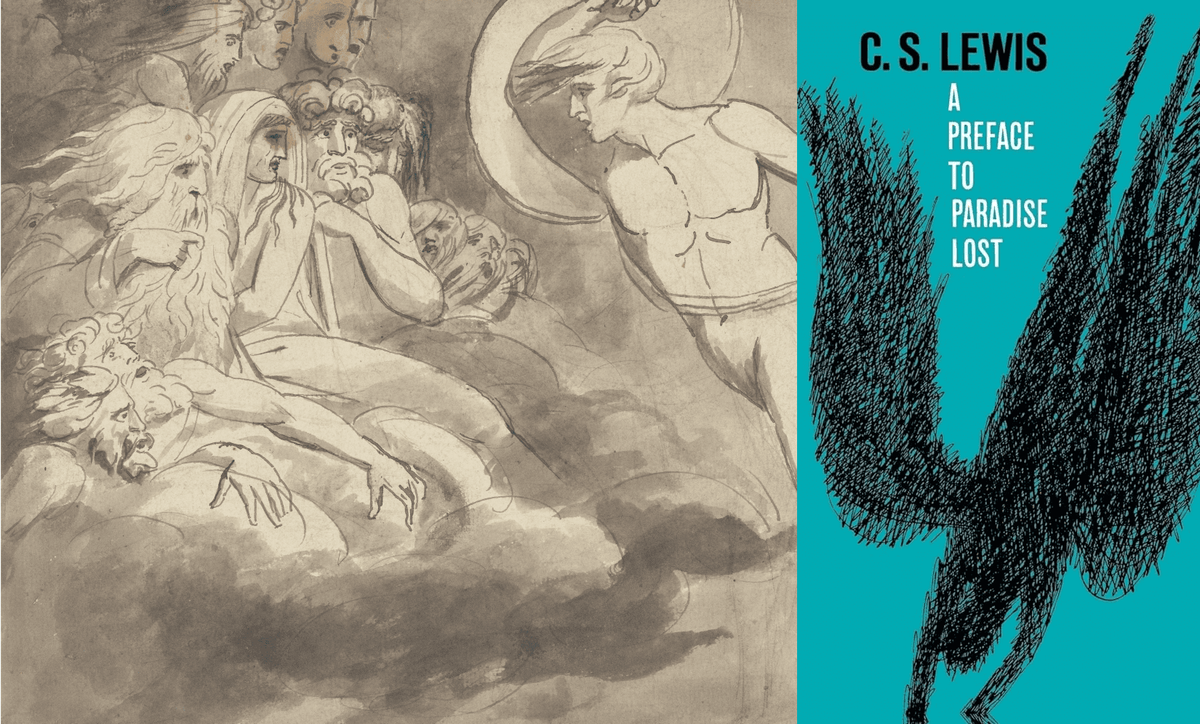



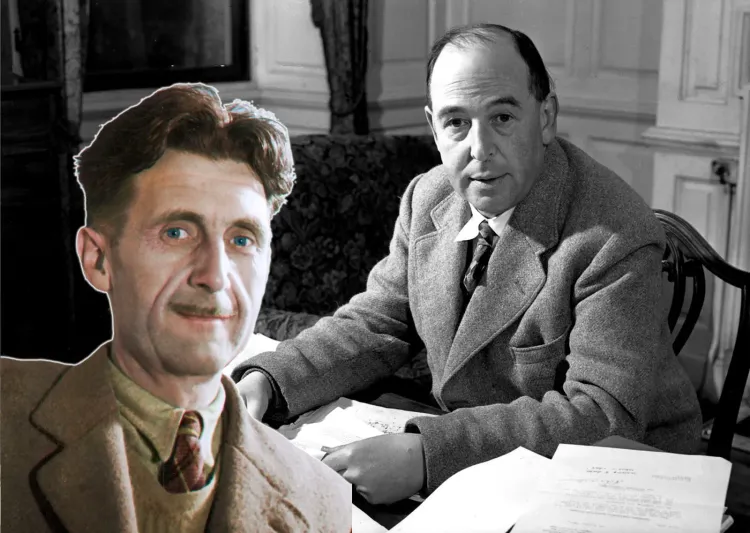
Member discussion